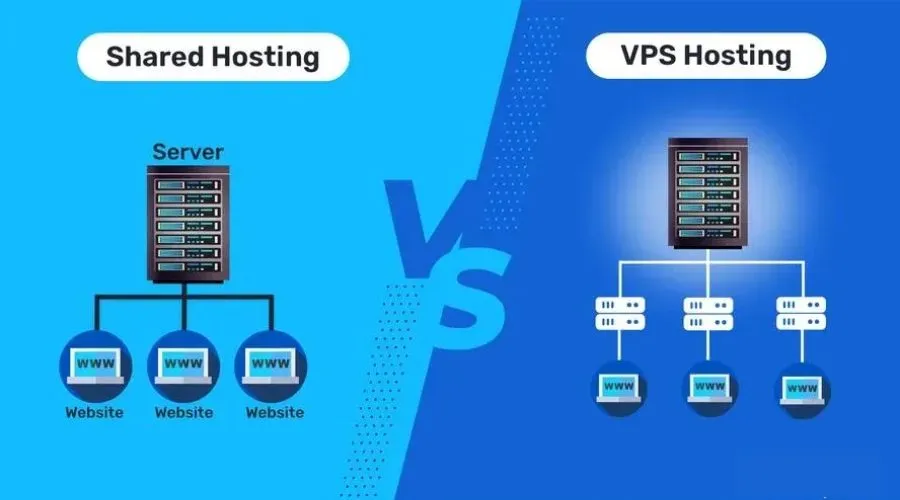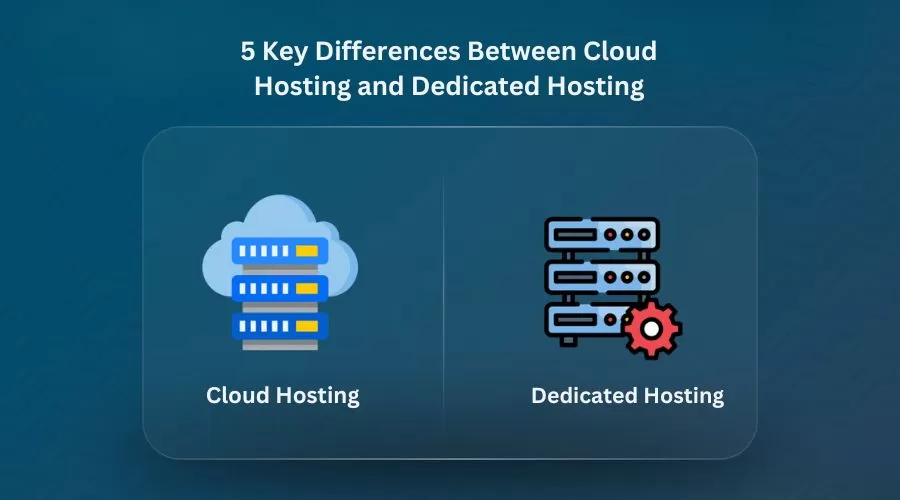Want to know what are the biggest mistakes to avoid when selecting a hosting plan? If yes, you have landed on the perfect article now. Learning how to avoid these common web hosting mistakes before you make them is important as they can cost you money and even harm your website. Look for a host …
5 Mistakes To Avoid When Selecting A Hosting Plan

Want to know what are the biggest mistakes to avoid when selecting a hosting plan? If yes, you have landed on the perfect article now.
Learning how to avoid these common web hosting mistakes before you make them is important as they can cost you money and even harm your website. Look for a host who can meet your needs and budget.
To learn about the major mistakes that you can make while selecting a web host plan, hang on to this article until the end.
Table of Contents
ToggleList Of 5 Mistakes to Avoid When Selecting a Hosting Plan
Choosing a suitable hosting option is important in creating a smooth website. whether you’re starting a business website, blog, online store, or something else completely. Make sure your host is dependable, effective, and ready to help. Some of the most frequent web hosting mistakes that you should avoid are as follows:
1. Choosing the Cheapest Hosting Plan
Choosing the least costly hosting plan is one of the most frequent errors people make. Despite their obvious affordability, low-cost hosting plans often come with drawbacks like limited bandwidth, inadequate storage, slow loading times, and poor customer service. These low-cost plans often use shared hosting services, which means that your website must compete with multiple other sites for resources, which can result in slow performance and failures. Think about the value a hosting plan offers rather than just the cost. Look for features like scalability options, SSD storage, customer support availability, and reliable guaranteed uptime. Purchasing a high-quality hosting package ensures that your website functions effectively and can manage sudden increases in traffic.
Also Read: 7 Best Hosting Services For Developers.
2. Ignoring the Hosting Provider’s Uptime Guarantee
Your company can suffer from website delays that result in lost sales, poorer search engine rankings, and a bad user experience. Before choosing a hosting provider, many people make the mistake of failing to verify their uptime guarantee. To ensure that your website is accessible the majority of the time, a reputable web host should provide at least an uptime assurance of 99.9%. Check customer reviews and third-party monitoring reports to confirm a hosting provider’s uptime assurances before choosing one. High uptime rates may be promised by certain providers, but they may not live up to their promises. Select a provider with a solid reputation for reliability because frequent downtime can irritate users and harm your website’s reputation.
3. Not Considering Scalability and Future Growth
Ignoring your website’s potential growth is another common error. Without considering future expansion, many beginners select a hosting plan that satisfies their present needs. Additional resources like more bandwidth, storage, and processing power will be required as your website expands and draws more users. You might experience performance problems or have to move to a different provider, which can be inconvenient if your hosting plan does not support simple upgrades. Select a hosting company that offers flexible plans so you can easily upgrade as your website grows to avoid making such a mistake. Compared to shared hosting plans, cloud, and VPS hosting options frequently offer greater scalability.

4. Overlooking Security Features
When selecting a hosting plan, website security is an important consideration that should not be ignored. It is often believed that all web hosts offer the same degree of security, but this is false. Your website may be more prone to malware infections, data breaches, and cyberattacks if it lacks security features. Look for crucial security features like firewalls, malware detection, DDoS protection, SSL certificates, and daily backups when reviewing hosting companies. A quality hosting firm should also provide 24/7 security threat monitoring and support. Purchasing a safe hosting plan will protect your users, data, and website from potential threats.
5. Failing to Check Customer Support Quality
Many people choose a hosting plan without considering the importance of reliable customer service. When problems occur—like failures, security lapses, or technical challenges—you need a hosting company that provides quick and effective customer service. Check a web host’s customer service by contacting them by phone, email, or live chat with any questions before selecting one. Verify the availability of support channels, response times, and response quality. When technical problems arise, a provider with skilled technicians and round-the-clock customer support can spare you a lot of issues.
Conclusion
When choosing a web hosting plan, there are a number of factors to carefully consider. Choosing the cheapest plan, missing uptime guarantees, neglecting scalability, ignoring security features, and failing to check customer support are five common mistakes that can be avoided to make a smart decision. A reliable web host is necessary to keep a website safe, quick, and effective. Investing in a high-quality hosting plan will ensure a flawless user experience, enhance the efficiency of your website, and effortlessly support the growth of your company.
FAQ
Q. What is the biggest mistake when choosing a web hosting plan?
A. Choosing the cheapest plan without considering performance, security, and scalability.
Q. Why should I check uptime guarantees?
A. Low uptime can cause frequent website downtimes, affecting traffic and SEO rankings.
Q. How important is customer support in web hosting?
A. Poor support can delay issue resolution, impacting your website’s performance.
Q. Should I consider scalability?
A. Yes, ensure the plan supports future traffic growth.
Q. Why does security matter in web hosting?
A. Weak security can lead to data breaches and website hacks.










